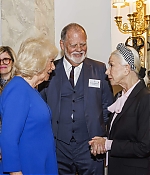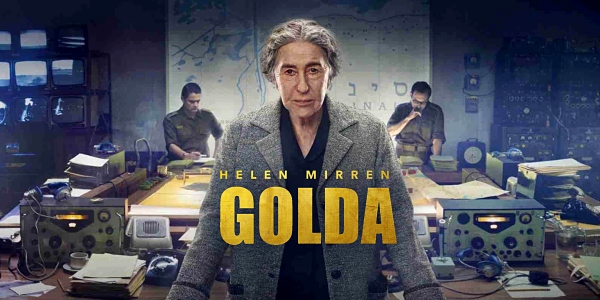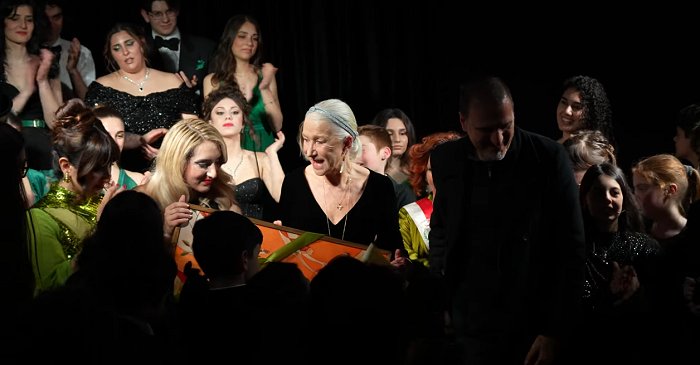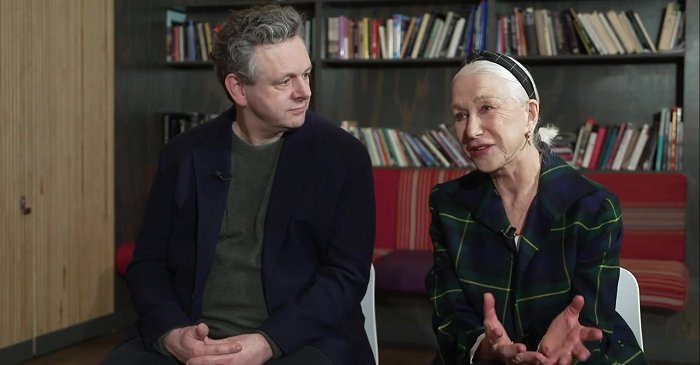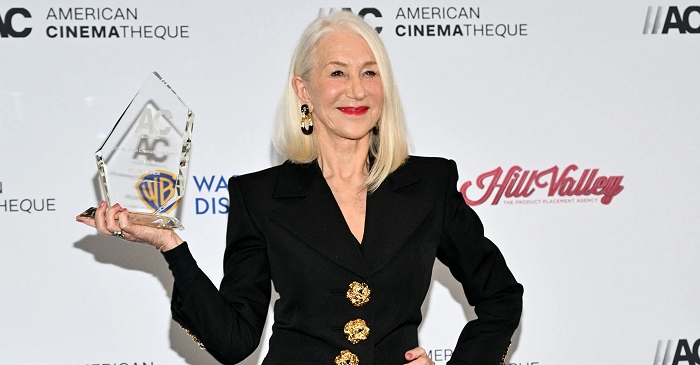
|
Welcome to The Helen Mirren Archives, your premiere web resource on the British actress. Best known for her performances with the Royal Shakespeare Company, "Prime
Suspect" and her Oscar-winning role in "The Queen", Helen Mirren is one of the world's most eminent actors today. This unofficial fansite provides you with all latest
news, photos and videos on her past and present projects. Enjoy your stay.
|
Celebrating
10 years
on the web
|
Children of God
July 27, 1994
| 63 minutes
|
Production Notes
To spend a couple of years in a new religious movement that you later decide is not for you is an experience shared by thousands. To spend 18 years in a new religious movement that you then denounce as hell on earth smacks of carelessness. But that, according to “Children of God”, was the experience of the Padilla family – Sylvia, an English woman, Arnoldo, her Costa Rican husband, and their children. As Sylvia and her children tell it, the “Family” – previously known as the “Children of God” – held the Padillas in thrall for nearly two decades. It was a life, they say, of sexual and financial exploitation that they endured because they were mind-controlled by the cult. There is little doubt that the Padillas have led a difficult life. Arnoldo, by Sylvia’s own admission, was an alcoholic and a womaniser for most of their marriage. Since the Family banned contraception, Sylvia says she had more children than she wanted. One daughter was sexually abused by a member of the Family who was living in the Padilla house, another daughter died of cancer. These facts are not disputed. There is dispute, however, over the interpretation of the facts, and in particular over how much responsibility the Family should bear.
For Sylvia and her daughters, the Family is to blame: they say they remained in the group for 18 years because they were brainwashed. For the Family, the Padillas were a problem. For most of the time, they say, the Padillas lived in and ran their own home, rather than living in the group’s communal home. They eventually broke their connection at the Family’s request. Mr Smithson entered this territory with, he says, a single ambition – to allow the Padillas to tell their story. But how is the viewer to understand this story? The idea that an organisation has the power to brainwash is promoted by opponents of new religious movements to explain why people enter and remain with them for long periods. It is not accepted, however, by most of the sociologists and psychologists who have studied the phenomenon. They point out that thousands pass through such movements without apparent ill effects, joining of their own free will and leaving when membership clashes with other beliefs or desires. Even where physical coercion is involved, as it was, for instance, with US prisoners in the Korean war, brainwashing has proved ineffective.
The other aspect of the Padillas’ story is that since she left the Family two years ago, Miriam Padilla, one of Sylvia’s daughters, has been an active member of a campaign against the Family, organised by the US-based Cult Awareness Network (CAN). Miriam has been a witness in several countries in cases of alleged child abuse brought against the Family. All the cases have collapsed. Bithia Sherman, a former activist in the same campaign, recalled discussing her activities with Miriam while Miriam was on a visit to California with Mr Smithson. One purpose of the visit was to acquire copies of old video tapes that CAN activists had stolen from a Family warehouse in the Philippines. Mr Smithson used extracts of the tapes in his film, although he insists that neither he nor Channel 4 paid for them. Ms Sherman alleges that Miriam had mixed motives. ‘Initially she said that she wanted just to get on with her life, but then she told me that she liked the recognition and fame she had got from campaigning against the Family and the money she had received for it . . . She told me that she had employed an agent to attend to all the telephone calls she received for interviews and to handle the financial arrangements… She went on to explain to me that her family had never been very much in the Family… and that the abuse she had suffered had mainly come from her own father.’
Mr Smithson agrees that a bitter argument rages around the Family. But it was not his brief, he says, to reflect it, beyond to acknowledge that the Family disputes the Padillas’ account. Perhaps the Padillas have convinced themselves that their interpretation of their experience is correct. Others argue with equal conviction that it is not.

